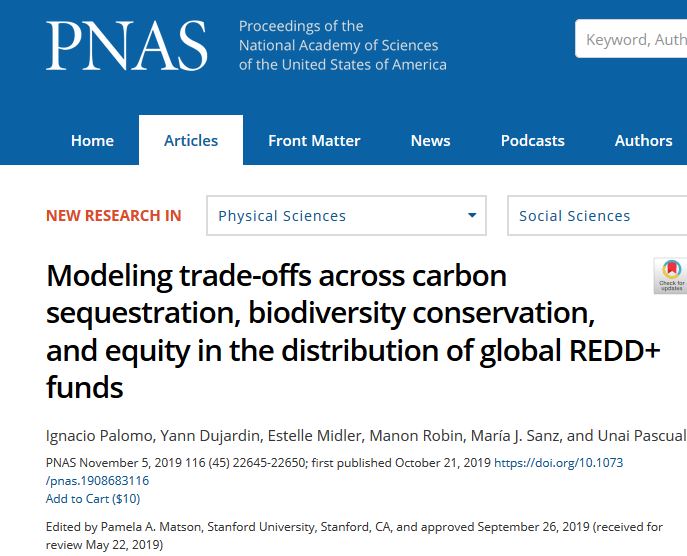September 18, 2019
Published by BC3Research Xaquín García Mikel González-Eguino at September 18, 2019
Environmental externalities call for the use of environmental taxes to get prices right and thereby reduce environmental pressures. To date, however, the Spanish government makes only limited use of environmental taxes. One major reason for the policy reluctance are concerns on the regressive impacts of environmental taxes. We argue that policy can hedge against these concerns by means of revenue recycling. More specifically, we assess the impacts of a green tax reform where additional revenues are redistributed lump-sum to Spanish households on an equal-per-capita basis. Based on quantitative evidence from coupled microsimulation and computable equilibrium analyses we find that such a green tax reform leads to a substantial reduction in harmful emissions while having a progressive impact.
October 22, 2019
Published by BC3Research Maria Jose Sanz at October 22, 2019
The Paris Agreement introduced an ambitious goal of limiting warming to 1.5 °C above pre-industrial levels. Here we combine a review of modelled pathways and literature on mitigation strategies, and develop a land-sector roadmap of priority measures and regions that can help to achieve the 1.5 °C temperature goal. Transforming the land sector and deploying measures in agriculture, forestry, wetlands and bioenergy could feasibly and sustainably contribute about 30%, or 15 billion tonnes of carbon dioxide equivalent (GtCO2e) per year, of the global mitigation needed in 2050 to deliver on the 1.5 °C target, but it will require substantially more effort than the 2 °C target
November 11, 2019
Published by BC3Research Ignacio Palomo Maria Jose Sanz Unai Pascual at November 11, 2019
The program on Reducing Emissions from Deforestation and Forest Degradation (REDD+) is one of the major attempts to tackle climate change mitigation in developing countries. REDD+ seeks to provide result-based incentives to promote emission reductions and increase carbon sinks in forest land while promoting other cobenefits, such as the conservation of biodiversity.
March 2, 2020
Published by BC3Research Iñaki Arto at March 2, 2020
La atribución de la responsabilidad de las emisiones de CO2 entre productores y consumidores es un tema controvertido en la política y la investigación del cambio climático. Se utilizan dos métodos contables principales en la literatura para determinar la contribución de los países a las emisiones globales. La contabilidad basada en la producción (PBA) mide la cantidad de CO2 liberado a la atmósfera por las industrias y los hogares de un país. La contabilidad basada en el consumo (CBA) atribuye las emisiones al consumo de productos finales del país. CBA redistribuye las emisiones de PBA y considera que las emisiones en otro país son necesarias para el consumo del país de origen. Estos dos marcos contables se utilizan para asignar la responsabilidad de las emisiones actuales de CO2. La responsabilidad de producción se dirige a los países que generan directamente las emisiones. La responsabilidad del consumidor se dirige a los países que en última instancia impulsan la presión.




